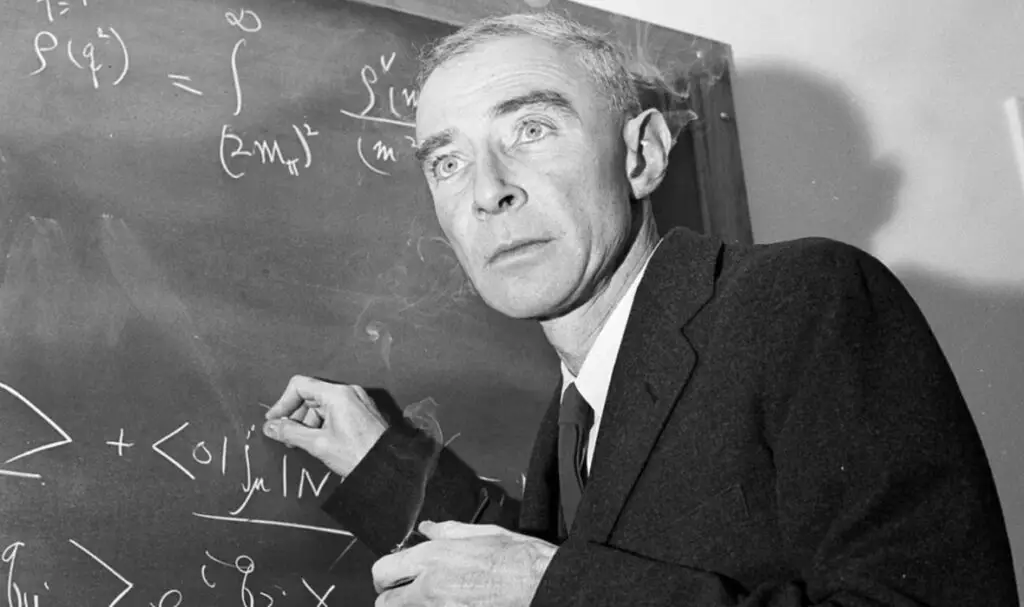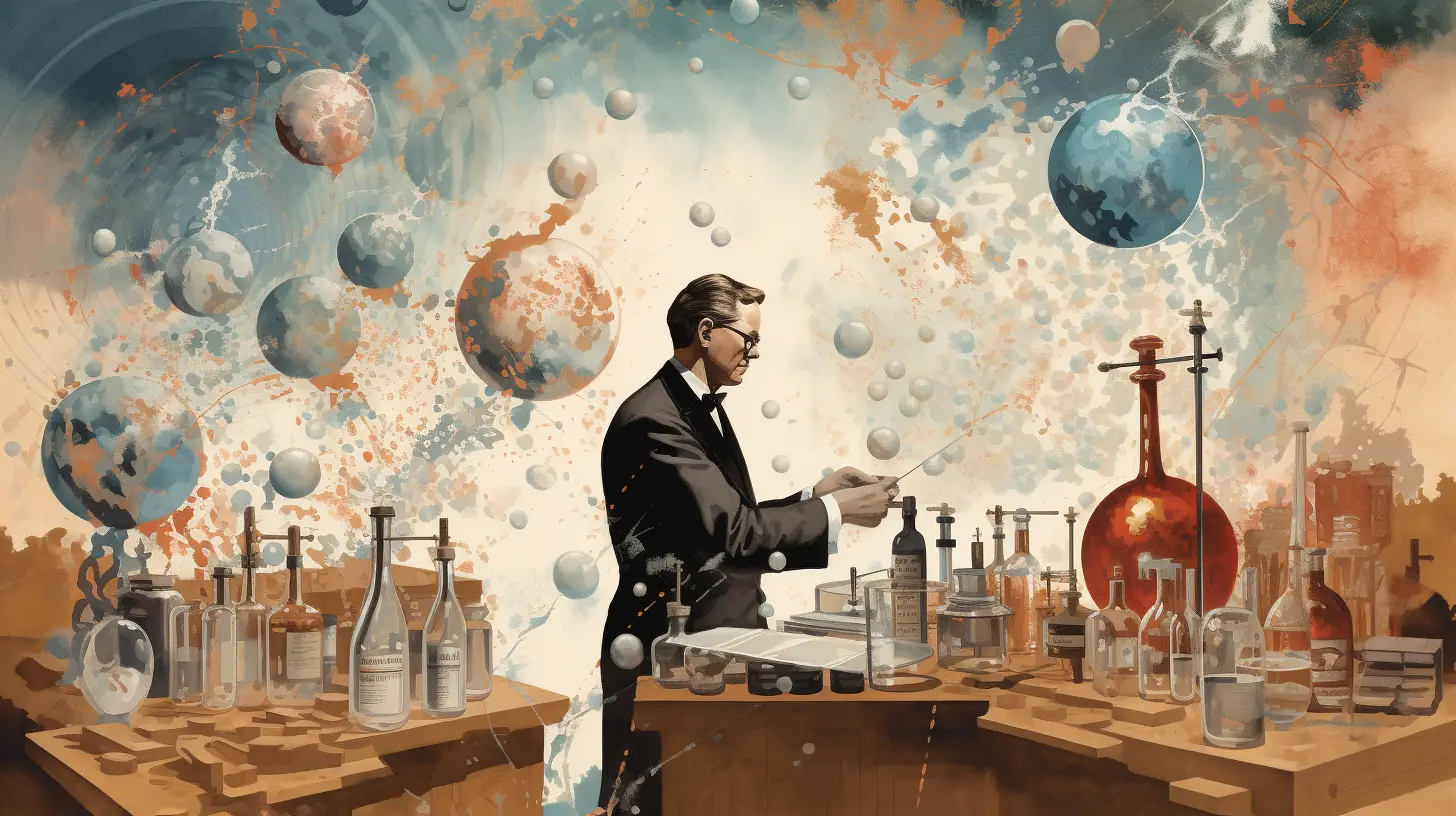Did you know that Oppenheimer worked with Einstein on the Manhattan Project and was a colleague of Einstein at the Institute for Advanced Study at Princeton University in the US?
J. Robert Oppenheimer is a significant figure in the history of the United States and the world due to his substantial contribution to the development of the atomic bomb and its impact on nuclear policy and technology. By leading the Manhattan Project, Oppenheimer played a crucial role in the development of the first atomic bomb, which profoundly impacted the end of World War II and shaped international relations and geopolitics for decades. At the same time, controversy surrounding his political affiliation added a complex element to his personality and illustrated the political and social tensions of the era.
Here are 25 interesting facts about J. Robert Oppenheimer:
1. J. Robert Oppenheimer was born on April 22, 1904 in New York.
2. His parents were German Jewish immigrants, his father being a prosperous businessman.
3. Although he came from a Jewish family, Oppenheimer studied Hinduism and Sanskrit during his studies at Harvard University.
4. He graduated from Harvard University in just three years, with “summa cum laude” in Chemistry.
5. After Harvard, Oppenheimer studied at the University of Cambridge and the University of Göttingen in Germany, where he obtained a doctorate in theoretical physics in 1927.
6. At the University of Göttingen, Oppenheimer collaborated with the brightest minds of the time, including theoretical physicist Max Born.
7. In 1929, at the age of 25, Oppenheimer was appointed professor at the University of California, Berkeley.
8. He got involved in left-wing politics in the ’30s, joining anti-fascist and labor causes.
9. In 1941, Oppenheimer married Katherine “Kitty” Puening, who had been a member of the Communist Party.
10. Despite concerns about his political connections, in 1942 Oppenheimer was chosen to lead the Manhattan Project, an ultra-secret government project aimed at developing the atomic bomb.
READ MORE: Top 10 Japan Culture Shocks | All You Need To Know
11. Under his leadership, the Manhattan Project built three atomic bombs: “Trinity”, “Little Boy” and “Fat Man”.
12. The detonation of “Trinity”, the first atomic bomb in history, took place on July 16, 1945 in the New Mexico desert.
13. At the moment of the detonation, Oppenheimer uttered the famous quote from the Bhagavad Gita: “Now I am become Death, the destroyer of worlds.”
14. After the war, Oppenheimer became a fervent advocate of international control over nuclear weapons.
15. In 1947, he was appointed director of the Institute for Advanced Study in Princeton, where he remained until 1952.
16. Oppenheimer was investigated during McCarthyism for alleged communist ties. In 1954, his security was withdrawn, marking the end of his career in politics.
17. Despite all the controversy, in 1963 he was rehabilitated and awarded the Fermi Prize, the highest honor of the US government in the field of atomic energy.
18. Oppenheimer had a great passion for literature and knew many famous writers, including T. S. Eliot and Ernest Hemingway.
19. As a professor, he was known for inspiring his students not only with scientific knowledge but also with his passion for art and literature.
20. He played an essential role in establishing a national scholarship program for talented students, known as the National Merit Scholarship.
21. His greatest contribution to theoretical physics was his theory about gravitational collapse, which laid the groundwork for the discovery of black holes.
22. Oppenheimer died of throat cancer on February 18, 1967.
23. In 2005, a PBS series about his life, entitled “Oppenheimer”, was produced and, more recently, in 2023, Christopher Nolan directed a biographical thriller film of the same name.
24. In his honor, a crater on the moon and an asteroid have been named “Oppenheimer”.
25. Oppenheimer’s personality and work continue to spark enormous interest, testimony to the complexity and contradictions of the nuclear age.
In a world still marked by nuclear risks and debates on disarmament, Oppenheimer’s works and ideas continue to challenge us and remind us of the need for responsibility and caution in the field of nuclear technology.


